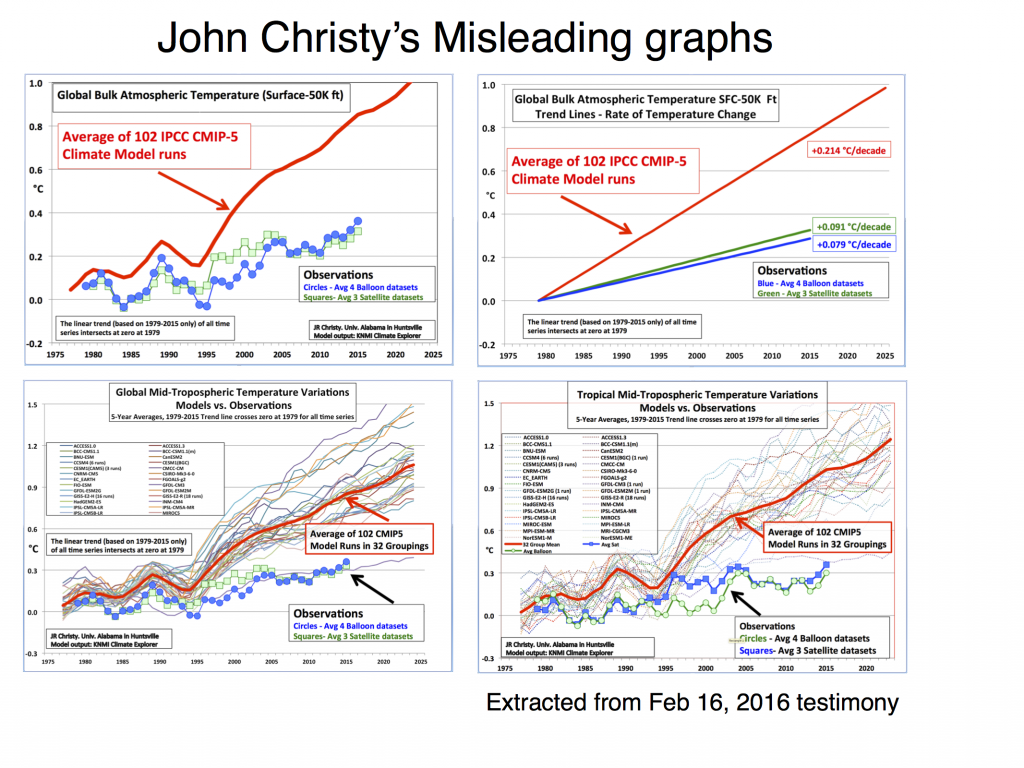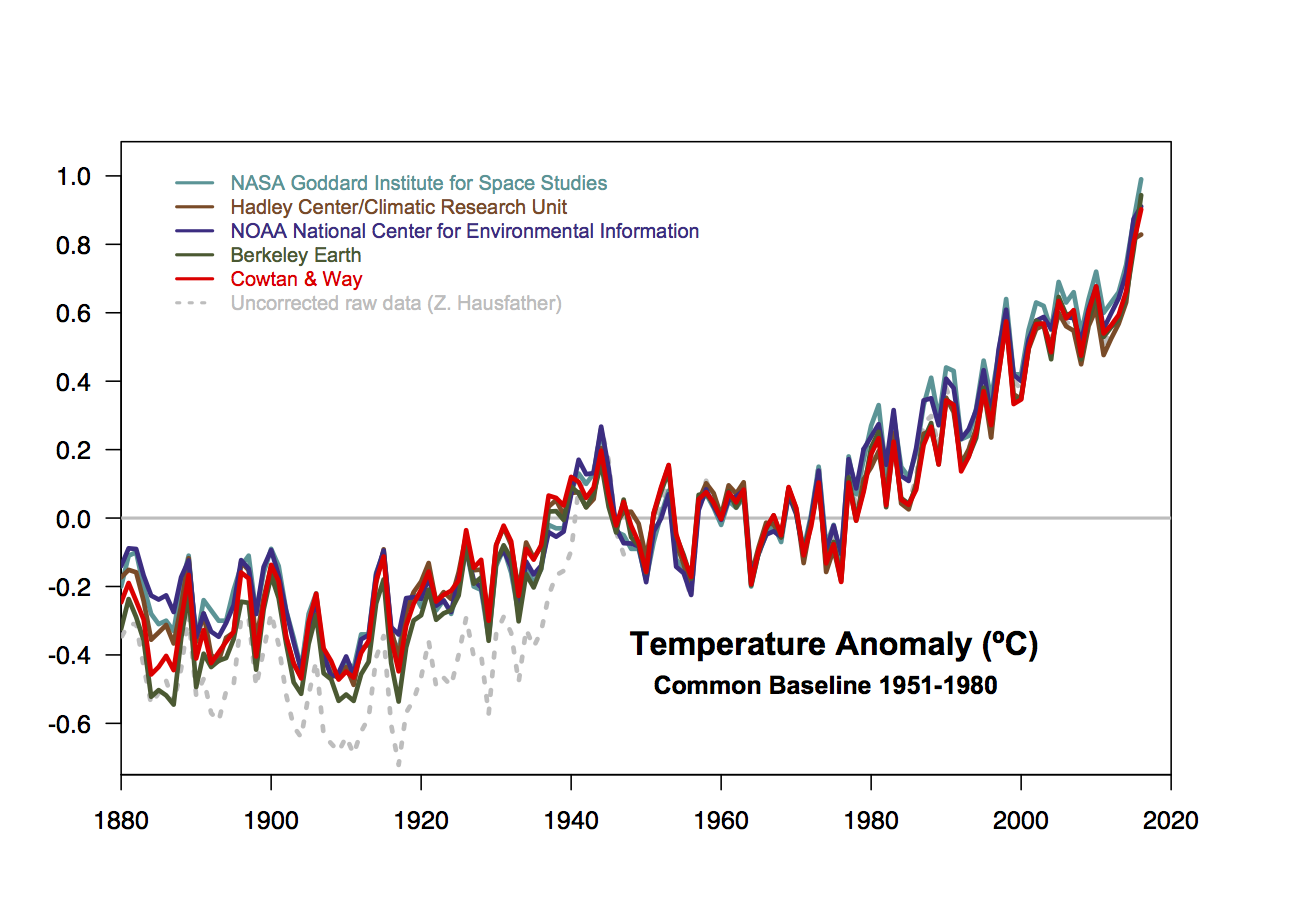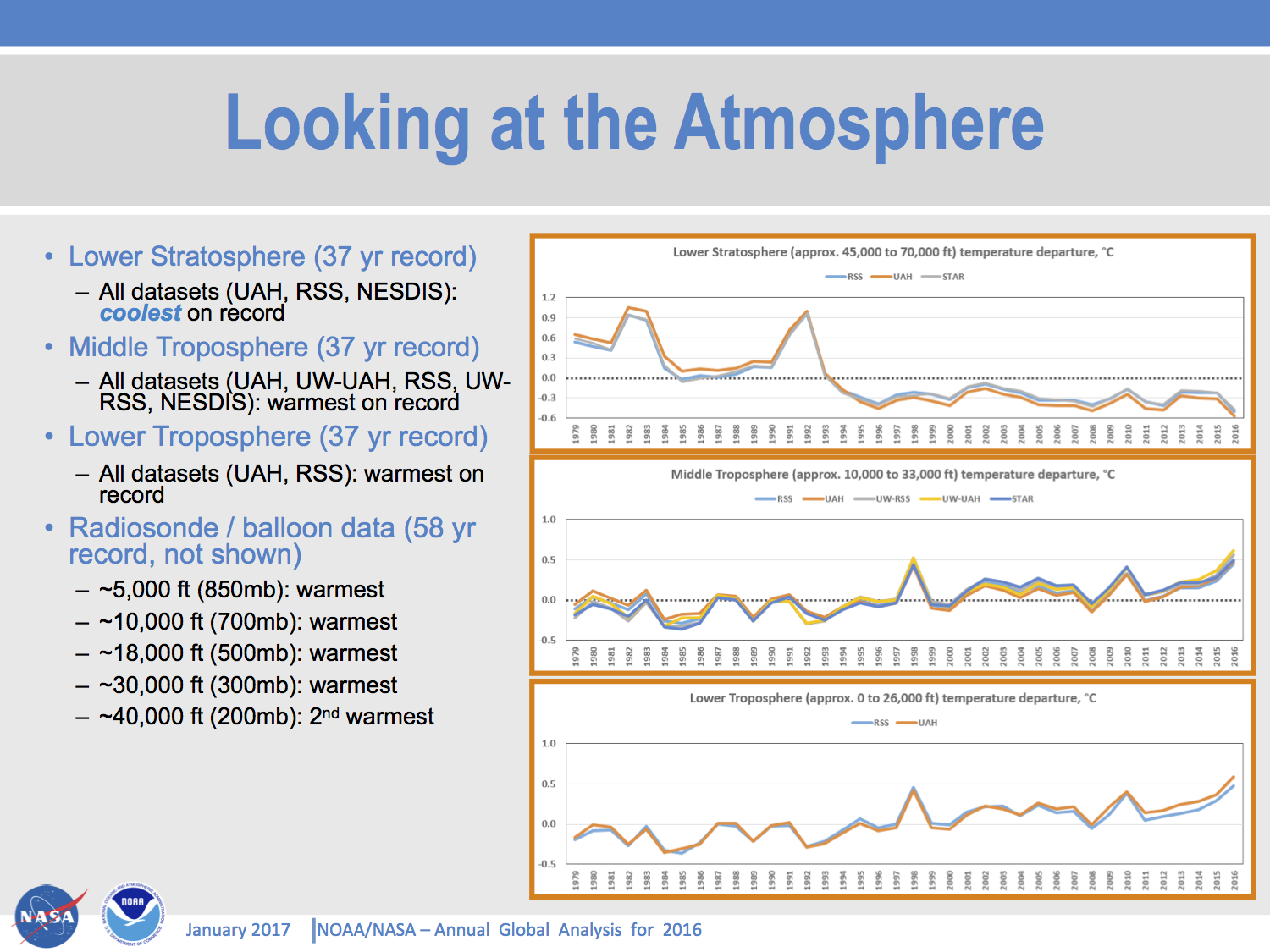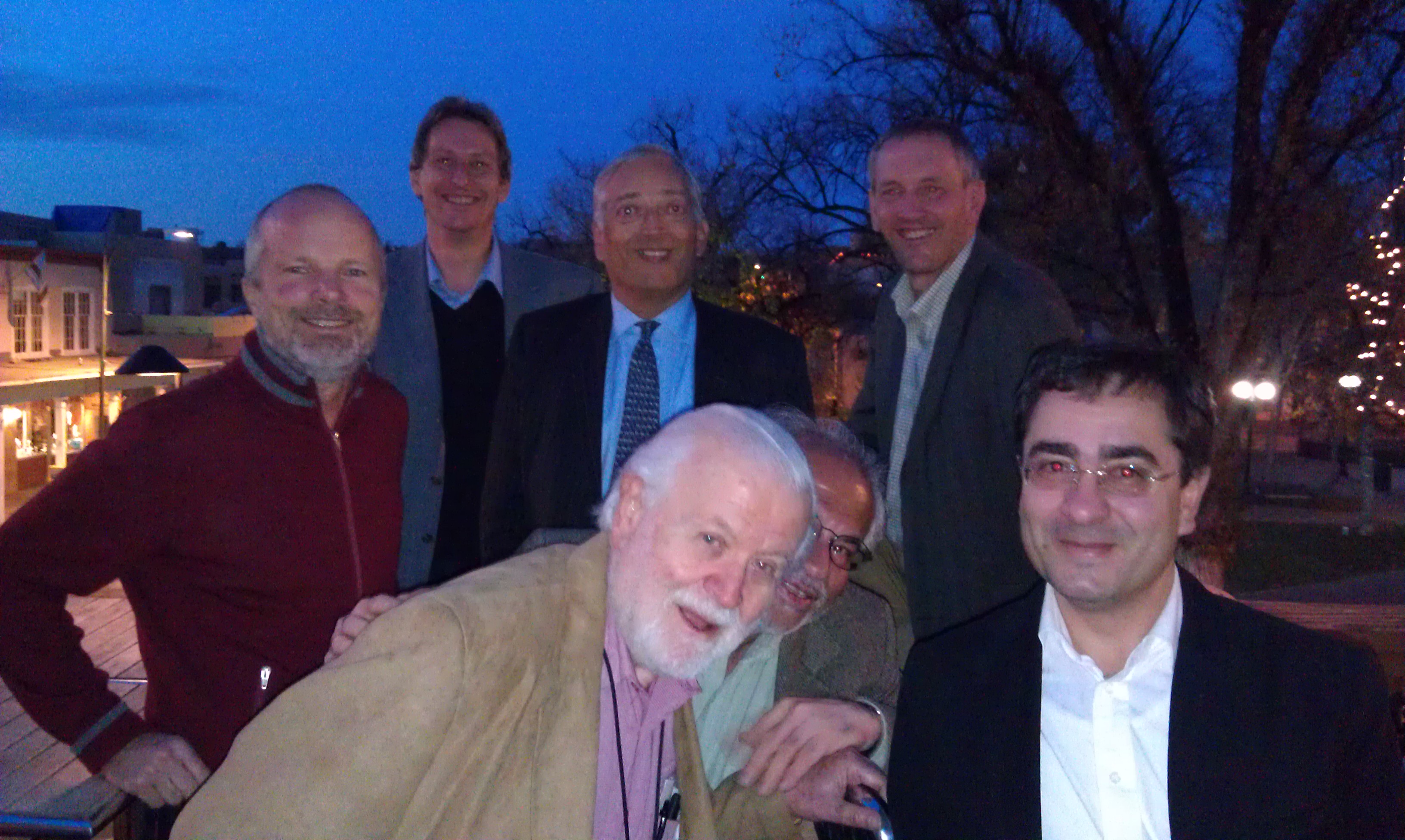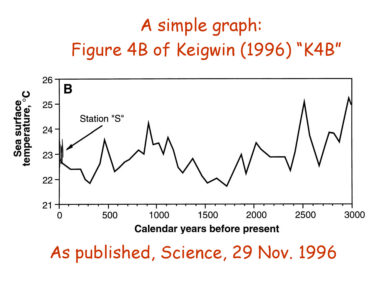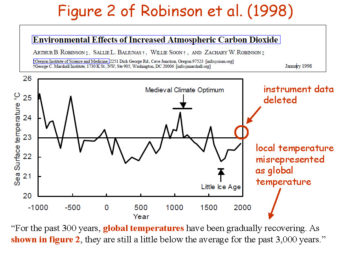Gavin has already discussed John Christy’s misleading graph earlier in 2016, however, since the end of 2016, there has been a surge in interest in this graph in Norway amongst people who try to diminish the role of anthropogenic global warming.
I think this graph is warranted some extra comments in addition to Gavin’s points because it is flawed on more counts beyond those that he has already discussed. In fact, those using this graph to judge climate models reveal an elementary lack of understanding of climate data.
